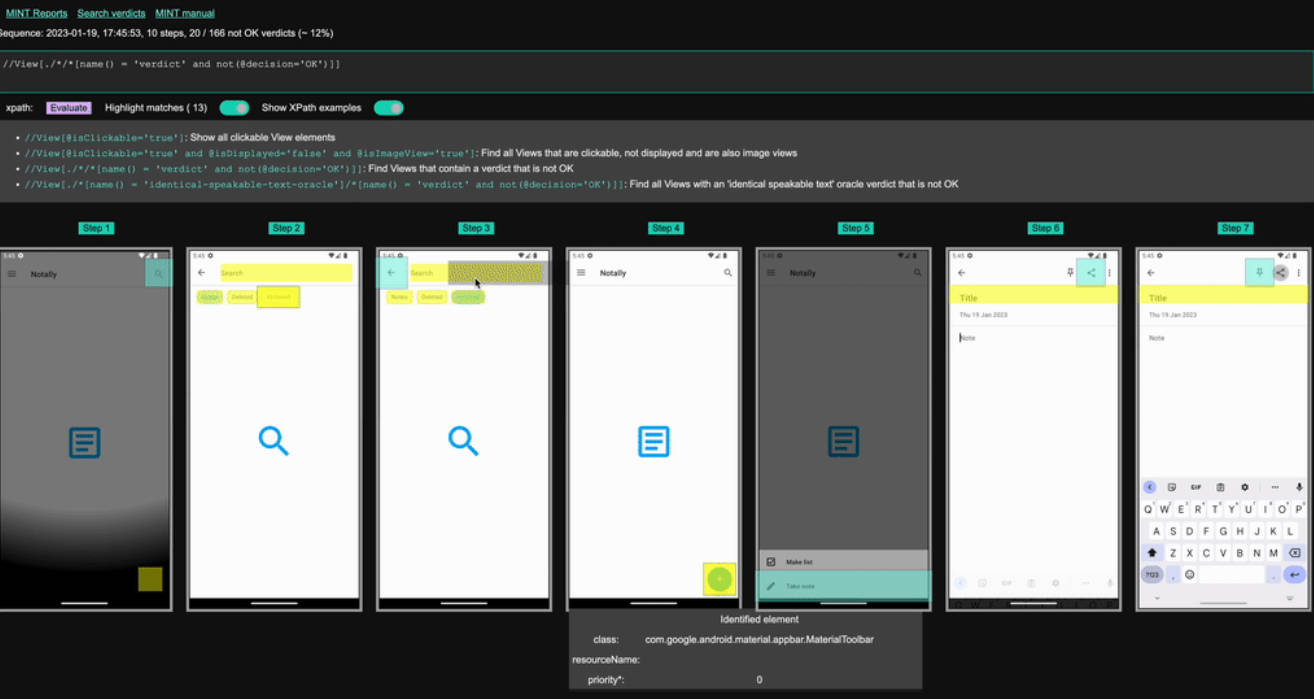Snapshot Testing with Kotlin
Snapshot testing is a test technique where first time the test is executed the output of the function being tested is saved to a file, the snapshot, and future executions of the test will only pass if the function generates the very same output.
This seems very popular in the fronted community but us backends can we use it too!
In this PoC I will use origin-energy/java-snapshot-testing and as stated in “the testing framework loved by lazy productive devs” I use it whenever I find myself manually saving test expectations as text files ?
To configure the library just follow the Junit5 + Gradle quickstart:
- Add the required dependencies
- Add the required
src/test/resources/snapshot.propertiesfile. It uses by defaultoutput-dir=src/test/javaso snapshots are generated within the source code (I suppose so you don’t forget to commit them to git) but I personally useoutput-dir=src/test/snapshotsso snapshots are generated in its own directory.
Let’s start!
Test a simple implementation
Imagine that we have this simple implementation:
class MyImpl {
fun doSomething(input: Int) = MyResult(
oneInteger = input,
oneDouble = 3.7 * input,
oneString = "a".repeat(input),
oneDateTime = LocalDateTime.of(
LocalDate.of(2022, 5, 3),
LocalTime.of(13, 46, 18)
)
)
}
We can snapshot test it this way:
@ExtendWith(SnapshotExtension::class)
internal class SnapshotTesting {
private val myImpl = MyImpl()
@Test
fun `should do something`(expect: Expect) {
val myResult = myImpl.doSomething(7)
expect.toMatchSnapshot(myResult)
}
}
It will create a snapshot file src/test/snapshots/org/rogervinas/MyImplTest.snap with these contents:
org.rogervinas.MyImplTest.should do something=[
MyResult(oneInteger=7, oneDouble=25.900000000000002, oneString=aaaaaaa, oneDateTime=2022-05-03T13:46:18)
]
And if you re-execute the test it will match against the snapshot.
Use other serializers
As you can see in the previous example by default this library generates snapshots using the “ToString” serializer. We can use the JSON serializer instead:
@Test
fun `should do something`(expect: Expect) {
val myResult = myImpl.doSomething(7)
expect.serializer("json").toMatchSnapshot(myResult)
}
Don’t forget to add the required com.fasterxml.jackson.core dependencies and to delete the previous snapshot.
Then the new snapshot file will look like:
org.rogervinas.MyImplTest.should do something=[
{
"oneInteger": 7,
"oneDouble": 25.900000000000002,
"oneString": "aaaaaaa",
"oneDateTime": "2022-05-03T13:46:18"
}
]
We can also use our own custom serializers just providing in the serializer method one of the serializer class, the serializer instance or even the serializer name configured in snapshot.properties.
Use parameterized test
To make this library work with parameterized tests we have to use the scenario method:
@ParameterizedTest
@ValueSource(ints = [1, 2, 3, 4, 5, 6, 7, 8, 9])
fun `should do something`(input: Int, expect: Expect) {
val myResult = myImpl.doSomething(input)
expect.serializer("json").scenario("$input").toMatchSnapshot(myResult)
}
This way each execution has its own snapshot expectation:
org.rogervinas.MyImplTest.should do something[1]=[
{
"oneInteger": 1,
"oneDouble": 3.7,
"oneString": "a",
"oneDateTime": "2022-05-03T13:46:18"
}
]
...
org.rogervinas.MyImplTest.should do something[9]=[
{
"oneInteger": 9,
"oneDouble": 33.300000000000004,
"oneString": "aaaaaaaaa",
"oneDateTime": "2022-05-03T13:46:18"
}
]
Tests should be deterministic
What if the implementation we have to test is this one?
class MyImpl {
private val random = Random.Default
fun doSomethingMore() = MyResult(
oneInteger = random.nextInt(),
oneDouble = random.nextDouble(),
oneString = "a".repeat(random.nextInt(10)),
oneDateTime = LocalDateTime.now()
)
}
If we have this snapshot test:
@Test
fun `should do something more`(expect: Expect) {
val myResult = myImpl.doSomethingMore()
expect.serializer("json").toMatchSnapshot(myResult)
}
First time will pass just creating the snapshot but following executions will fail because the test is not deterministic ?
In this case we can easily make this test deterministic why passing to MyImpl the Random and Clock implementations to use:
class MyImpl(private val random: Random, private val clock: Clock) {
fun doSomethingMore() = MyResult(
oneInteger = random.nextInt(),
oneDouble = random.nextDouble(),
oneString = "a".repeat(random.nextInt(10)),
oneDateTime = LocalDateTime.now(clock)
)
}
Then we can test it deterministically:
@ExtendWith(SnapshotExtension::class)
internal class MyImplTest {
private val myImpl = MyImpl(
Random(seed=1234),
Clock.fixed(Instant.parse("2022-10-01T10:30:00.000Z"), ZoneId.of("UTC"))
)
@Test
fun `should do something more`(expect: Expect) {
val myResult = myImpl.doSomethingMore()
expect.serializer("json").toMatchSnapshot(myResult)
}
}
So the snapshot will always be:
org.rogervinas.MyImplTest.should do something more=[
{
"oneInteger": 345130239,
"oneDouble": 0.6887620080485805,
"oneString": "aaaaaaaaa",
"oneDateTime": "2022-10-01T10:30:00"
}
]
And on the production environment we can create the MyImpl instance as:
fun main() {
val myImpl = MyImpl(Random.Default, Clock.systemDefaultZone())
println("myImpl.doSomething(3) = ${myImpl.doSomething(3)}")
println("myImpl.doSomethingMore = ${myImpl.doSomethingMore()}")
}
Thanks and happy coding! ?

